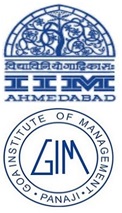Will the Stimulus of Rs. “20 lakh crore” Work to Arrest the Economic Crisis? An Assessment
Blog
The Deepening Crisis of the Indian Economy
This VIDEO Presentation[from 15 minutes onwards] is preliminary to a working paper that I would soon be bringing out on a tragedy that is going
Macroeconomic Challenges Posed by the COVID19 in India
Massive intervention in the capital markets to greatly enhance liquidity and reduce the policy rates would be necessary. Otherwise the financial sector would tumble like nine pins. We suggest a rate cut by 1.5% and massive injection of liquidity well above the r
The Villainous Politician and Local Governance
Despite the intention to encourage and support local self government, the post independence period has witnessed continuous erosion in local governance of cities. Indeed, the decline in the quality of living (at least for the middle classes) in cities, can be directly
Comment on the Trade Policy
The announcements made by the Minister are most disappointing. When world trade demand has shrunk by over 9%, a restatement of developmental efforts that have been going on, very marginal and routine things like promise to reduce transactions costs were the only elements. There is no
The Change Imperative
At the recently held conference on Building Infrastructure–Challenges and Opportunities at Vigyan Bhavan, the Prime Minister underscored the importance of infrastructure in India being able to sustain high growth, above 8%. What was remarkable
SEZs Will Not Hurt Farmers
A harried commerce minister wrongly responded to the concerns of farmers by stating that the current SEZ initiative could hurt those who are giving up their land. The SEZ initiative is certainly not the first best option to promote exports of manufactured goods from I
Dwelling On Delhi's Master Plan
The Delhi government would soon have to legislate to make special exemptions to Delhi’s Master Plan to override the Supreme Court’s (SC) order banning commercial activities in residential areas. Policy-makers and planner sitting in ivory towers
Metro And BRT Can Go Together
Substantial monies are being made available to large cities to build metros. Yet between metros and the newly emerging metropolitan cities , there is a misfit, as between a square peg and a round hole. Over years of town ‘planning’ that
Unlock SMEs To Tap Full Export Potential
SMEs are the backbone of exports from India, especially of manufactures and increasingly of services if the source of value addition is taken into account. Indeed manufacturing in the ‘original sense’ is very much an SME business. The reasons are not far t
Mismanaging National Assets
The National Highways Authority of India (NHAI) now admits that the Golden Quadrilateral (GQ) completion is going to be delayed and the cost overrun would be substantial. What it is not admitting is that its poor management of tolls and of the highw
Ignoring The Demand Side In Agriculture
Agricultural reform is not merely the opening up of the economy to imports and liberalising trade in general. Unfortunately, on the ill-advise of organisations like World Bank, we are hell bent on going the wrong way. The error is very much in the strategy. The receiv
One-Sided Law On Land Acquisition
Delays and risks in land acquisition are the overwhelming retardants in infrastructural construction. The problems are widely believed to arise in politicking and poor governance, but it is important to understand the deeper reasons lying in the law
The Fine Art Of Zero Maintenance
The Ahmedabad Municipal Corporation got a few hundred new CNG buses some months back, which look worn out already. No replacement of tail-lights, no repair of dents, no painting. The ph
A Small Step Towards Growing Out Of The Mess In Electricity Supply?
Finally perhaps the wheel has moved, even though an inch. The recent decision to allow captive units to supply at prices (even though only a little) higher than the marginal cost of generation finally means that a win-win move has been made. However
Benefits Outweigh The Costs Involved In The Narmada Dam Project
A great project is being held up on emotional grounds. The loss is the nation’s. Narmada has the potential to supply drinking water to the towns and cities of Gujarat, to irrigate the dry parts of Gujarat, to raise agricultural growth rates to high levels over t
Rural Infrastructure Needs A Fillip
Rural development, especially infrastructural development, by its very nature is holistic. Therefore, it can neither be left to a ministry of rural development, which cannot think beyond sop programmes, nor to the uncoordinated working of departments, like roads, publ
Can Any 'Reform' Be So Perverse And Irrational?
The government has proposed an amendment to the Postal Act that would bar the private sector from carrying articles below 500 gm. The move is regressive, has no rationale, is unimplementable and will not prevent losses in the DoP (department of posts). It will result
Water And Sewerage: The Eco-Politics
Water, among all infrastructure services, has to be the state’s responsibility. If the state cannot arrange to provide for water in the cities and other habitats, then nothing else that it does or provides is meaningful. By that count, most of
Making Reform A Positive Sum Game
Lalu Prasad and his team have been laying out transition path to reform from the mess that Indian Railways were in, steps that would most certainly pay off. The genius in discovering hidden operating leverage and overcoming slack in increasing the loading of wagons, e
SPVs No Solution To Infrastructure Woes
When interest rates are determined through the market, there is only a limited role for development finance institutions (DFIs). In the era of controls, and where the state mobilised and directed (if not monopolised) much of the savings and resource
Soft-Peddle Agriculture In WTO Talks
In policy circles, there is unanimity that with Europe and the advanced countries moving to less support for agriculture, India, as a developing country, would stand to gain. Unfortunately, the matter is not so self-evident. India’s comparative ad
Exporting Onions v/s Higher Learning
The HRD minister thinks he is doing right by preventing IIM, Bangalore, from taking up its Singapore campus project. First, the minister has violated the earlier permission granted to IIM-B by his own ministry. This is illustrative of a major risk i
Promote Markets To Hedge Traffic Risks
While the risks in road construction have fallen steeply since the first BOT roads of the National Highways Authority of India (NHAI), they remain much higher than they need be. The risks of land acquisition are particularly large in populous areas
Infrastructure Spending And Forex
Foreign exchange reserves are not like a bank balance which can be converted entirely into cash for spending. The issue of government expenditure for infrastructural investment has little directly to do with using or not using these. It has to do more with the e
Water Endowments Need To Replace Tariff Subsidies In Irrigation
Irrigation especially major irrigation cries for large investments especially in maintenance and rehabilitation. The positive externalities of these investments are very large. Waste in water usage too is very high. Crucial to realising the vast efficiency gains
Coal Is Crucial For India
Coal has to be the primary energy for the country. In the very long term of course fusion and solar could become important options, but that would have to await technological developments over which we have little influence or control. China despite having far richer
Restructuring The Oil Companies
Finally there is recognition that the public sector oil companies need to merge to allow them the size to be able to hold out against larger companies. All kinds of red herrings are being put forward and it is important that we do not get this wrong. We have already w
Stemming The Hollowing Out Of Manufacturing
Monetary targeting, which is the RBI’s way, is quite unsuitable in today’s environment of vastly asymmetric growth and capital flows. The belief that money supply determines the inflation rate was never quite true in the linear fashion that seems to
Putting Forex Reserves To Good Use
Government spending cannot directly affect the level of reserves, unless the Reserve Bank of India adopts a policy of killing exports and inflows by allowing the rupee to appreciate and imports to flood the market. Even that would take time to work on the reserv
Why Punish The Users Of National Highways?
Our cities are built with very low densities (floor space indices) means that they are unable to take on the correct spatial orientation of economic activities. This, of course, makes them socially expensive, and much more spread out than they need to be.
Petroleum: Remove Price Control, Reform Taxes
The administered pricing mechanism (APM) for oil products was dismantled in April 2002. But the nightmare continues for oil companies, investors, consumers and even the government. At least the APM had a ‘logic’, however questionable. To call what we
Infrastructure Reform Requires Switch To Direct Subsidies
A government which never expected to lose was booted out. A grouping that did not expect to win has now taken on the reins of government. It was neither the pursuit of ‘Hindutva’, nor its dilution, nor the b
Truckers Are Really Overloaded
The truckers’ strike is finally off and the nation heaves a sigh of relief. But one wishes the real issues faced by the industry had been brought up on the table and resolved once and for all, even if it had meant a prolonged strike. Unfortunately, the truckers
Airlines Will Need Service Quality Regulation
With Delhi and Mumbai airport in competent private hands. one can breathe a little easy. The underutilisation of assets, absurd designs, quixotic operational processes that impose huge passenger side discomforts and costs may hopefully go away.
Bringing Back High Growth
With PC back again there is widespread hope that the economy can revive. But perhaps much more important is his view that interest rates can now come down. I and several others have been arguing that the monetary conservatism exhibited by the central bank has been one


